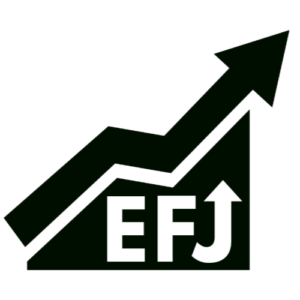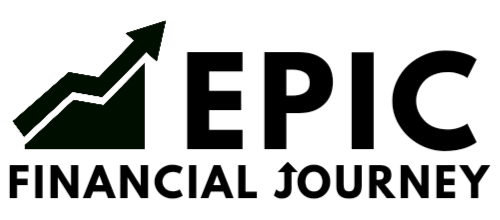Scout’s Core Belief #2 – Flexibility
Desire for Certainty
As a former engineer with an optimizer/maximizer personality, there is nothing in this world I desire more than absolute certainty. For most of my life I lived & breathed math & science which both operate in the realm of black & white absolutes; very rarely did I ever deal with gray areas of uncertainty. Sidenote: I took a required 100-level English class my last quarter of college and I was both astounded & angry that there were no “wrong” answers and that students were allowed to have “subjective opinions” – this made zero sense to me after 4 years of being required to produce definitive answers.
My training and background carried over naturally into the world of personal finance & investing since much of it is numbers-based. This was the world I felt comfortable in and perhaps one of the reasons I was drawn to it. Finding the FIRE movement a decade later further stoked my desire for optimization as I learned new techniques that could help me maximize every dollar and put it to the perfect use.
Descending into the Unknown
Everything was fine during the many years I spent in the accumulation phase of my financial journey – I had created a plan at the start of my investing career, altered it slightly from time-to-time as I obtained new information & knowledge, but primarily stayed on-plan & on-course throughout. Naturally I assumed that I could continue the same line of thinking forever, since it had served me well in my two decades of wealth building. However, as I neared retirement and sought a similarly “perfect” plan to draw down my portfolio my thinking started to change.
My rough guide all of these years had been the 4% rule and based on the pure math I knew logically I had nothing to worry about. Like others with a fear of the unknown, doubt still crept into my mind and I wondered if I was making the right decision to step away from my career. I spent many restless nights thinking about my “perfect” drawdown strategy while reading such books as “Can I Retire Yet?” and diving into the research of Dr. Wade Pfau. As I investigated more & more I soon realized that there was no definitive answer due to so many unknown variables (portfolio returns, rate of inflation, length of life, unanticipated expenses, etc). This uncertainty was compounded by the fact that the field of retirement research itself was relatively new – until recently most retirees didn’t live far into retirement, thus no need for a prolonged drawdown period. (Although this is starting to change because of continuing advances in medical technology, leading to longer lifespans). While I was seeking comfort & clarity, what I found instead were actually more options & more opinions along with more & more uncertainty.
Plans vs Planning
As President Dwight Eisenhower once said “Plans are worthless, but planning is everything”. For those into sports, perhaps boxer Mike Tyson is more relatable: “Everyone has a plan until they get punched in the mouth”. Regardless of which quote resonates more, the key takeaway is that even if a perfect plan is in place, living in an uncertain world means there are never any guaranteed outcomes. There is always a chance that things change, resulting in the original plan becoming less effective or even worthless. Sometimes we can control these changes, but many times we cannot. Rather than getting frustrated, demoralized, or even giving up, the best way to move forward is to be flexible and use the skill of planning to go with the flow, pivot, and find another way. After all, the end goal(s) are not changing, instead it’s just the way we get there that needs to change.
Embracing Flexibility in Retirement
Instead of giving up on my goal of early retirement and resigning myself to years or even decades more of work, this is where I began to accept uncertainty and really embrace the concept of planning and flexibility. Yes, I still wanted a plan to use as an initial starting point, but I also wanted the ability to adapt if/when the financial landscape ever changed (downturn in the economy, large unexpected expenses, lifestyle creep, etc).
Specifically, my initial plan was to roughly follow the 4% rule based on projected annual household expenses, withdrawing from a taxable brokerage account before age 59.5 then withdrawing from retirement accounts after 59.5. Since I am still near the start of retirement I am hoping to follow this plan for as long as possible, but I know there may come a day when I’ll have to deviate. To implement flexibility, my strategy is to contemplate a variety of backup plans that I could execute if/when the time ever comes. Some of these backup plans include: withdrawing from retirement accounts early and paying the 10% penalty, using money in a 529 account for myself instead of my kids, selling my current house and renting or buying a lower-cost house, moving to a lower cost-of-living area, cutting back on discretionary expenses, or *gasp* even finding a job that I could work either part-time or full-time. Obviously I hope to never enact any of these plans because they are all sub-optimal & go against everything I stand for, but at the end of the day they do give me peace of mind because of the options they provide.
Flexibility in Other Areas of Life
While I acknowledge that my example was specific to a very distinct area of my personal life, it doesn’t mean the concept of flexibility can’t apply elsewhere and to everyone. There are so many areas & times in life where things go wrong; instead of getting down & out, keep flexibility and the idea of planning in mind (not just a single plan), to help keep moving forward towards those goals. The unfortunate reality is that the majority of us won’t be able to follow our initial plan, but there is always an opportunity to pivot, change course as needed, and still get to the final destination in the end. And for anyone who ever feels frustrated or needs help, that’s exactly what we’re here for at Epic Financial Journey.
Links/Resources
- Definition of “Maximization”
- Definition of “The 4% Rule”
- Darrow Kirkpatrick, “Can I Retire Yet?”
- Dr. Wade Pfau
Reader Questions
- Has there been a time in your life when things didn’t go as planned, but you were able to successfully change course to meet your goal? Conversely, was there a time you stubbornly kept to the original plan only to make things worse?
Leave your answers or comments below – or email us directly at info@epicfinancialjourney.com

